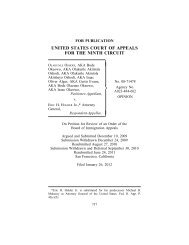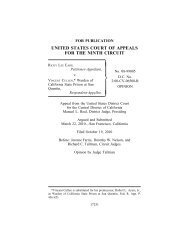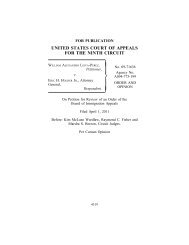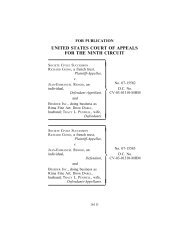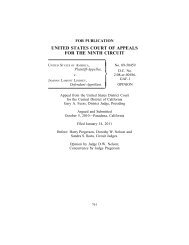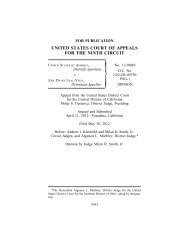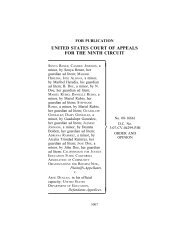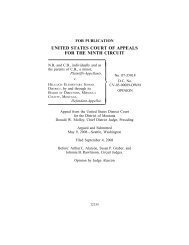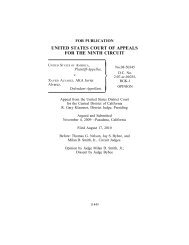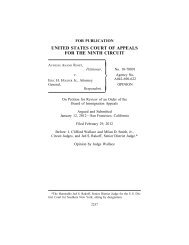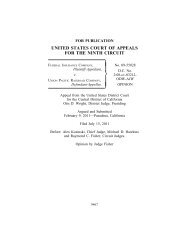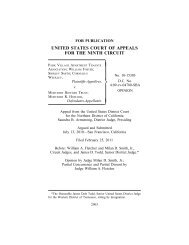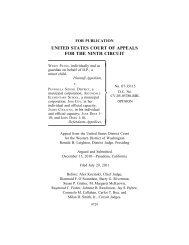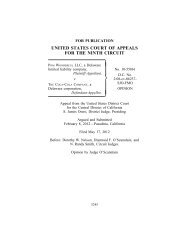kristin rossum v. deborah patrick - Ninth Circuit Court of Appeals
kristin rossum v. deborah patrick - Ninth Circuit Court of Appeals
kristin rossum v. deborah patrick - Ninth Circuit Court of Appeals
Create successful ePaper yourself
Turn your PDF publications into a flip-book with our unique Google optimized e-Paper software.
17398 ROSSUM v. PATRICK<br />
cient performance (Strickland’s first prong) as well as show<br />
that petitioner was not prejudiced by counsel’s alleged ineffectiveness<br />
(Strickland’s second prong).<br />
Neither Richter nor Pinholster should change the panel’s<br />
original conclusions. To be sure, Richter mandates deference<br />
even to the California Supreme <strong>Court</strong>’s summary denial <strong>of</strong> the<br />
habeas petition. And deference means that we are to hypothesize<br />
the arguments that “could have been made to support the<br />
state court’s decision,” and then determine if “fair minded<br />
jurists could disagree” as to whether these arguments were<br />
unreasonable under federal law. Richter, 131 S. Ct. at 786. In<br />
addition, where the right at issue is ineffective assistance <strong>of</strong><br />
counsel, habeas review is “doubly” deferential. Id. at 788. But<br />
even applying these standards, I conclude that no “fair minded<br />
jurist could disagree” that the arguments that could have been<br />
made in support <strong>of</strong> the state decision—particularly the decision<br />
to deny a hearing on these facts—were unreasonable<br />
under Strickland. Richter, 131 S. Ct. at 785-86.<br />
Richter is wholly distinguishable by the substantial evidence<br />
in that case <strong>of</strong> the petitioner’s guilt, as well as the plausible<br />
reasons for not pursuing the forensic testing on which<br />
the Strickland violation was premised. In contrast, in the case<br />
at bar, if the fentanyl metabolite test demonstrated the absence<br />
<strong>of</strong> metabolites in the autopsy samples, the government’s theory<br />
<strong>of</strong> murder would have been demonstrably erroneous. On<br />
this record, I can conceive <strong>of</strong> no plausible reason for counsel<br />
to have not conducted the test.<br />
And, while Pinholster narrowed the circumstances under<br />
which a federal court can order an evidentiary hearing, I<br />
believe that the instant case falls within those narrow circumstances.<br />
In Pinholster, the <strong>Court</strong> was concerned about a federal<br />
ruling based on facts no state court had had an<br />
opportunity to evaluate. The Pinholster majority did not<br />
address the situation here (although it was raised in the<br />
concurrence)—where the untested facts in the state habeas



